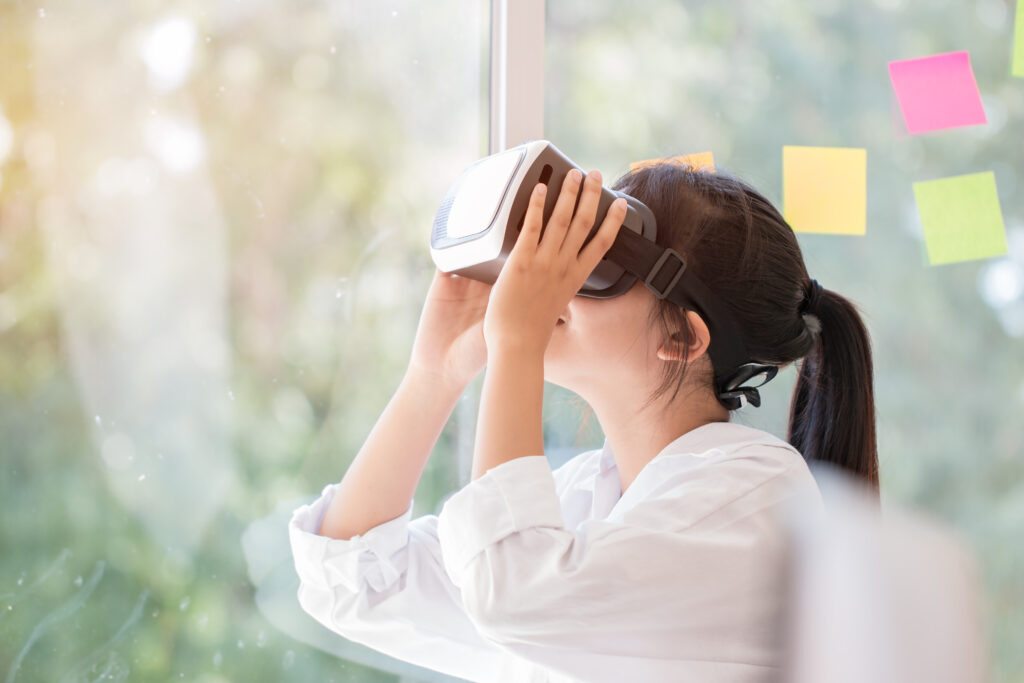Could COVID-19 Be the Catalyst that Propels XR Techs to the Next Level?
In April, Nikhil Joshi of the Economic Times wrote a very insightful piece wondering whether the Coronavirus pandemic would be the catalyst that changes the fate of Virtual Reality (VR). The article discusses, at length, the impact of the virus in various industries, noting in particular that with retail stores closed, people could no longer shop in person.

So, she asks how the human being, a naturally social and curious creature, would buy everything they need from home and feel contented. “People are social creatures who visit places like malls not only to buy products but also to socialize,” she writes. “Being confined to (our) homes goes against (our) social instincts.”
“People feel like prisoners in their homes; they miss not being able to step outside the house. They miss not being able to talk to friends or go to the mall and showrooms to shop for products.”
VR and other XR Solutions to the Rescue
Yet, it hasn’t been all doom and gloom, has it? Indeed, we can say that the challenges Joshi discusses in her article couldn’t have come at a better time.
For one, online shopping is already standard. The majority of people now shop online. According to Statista, about 14.1% of all commerce sales now happen online, with the figure projected to jump to 22% by 2022.
Even better, the problem has come at a time when Extended Reality (XR) technologies were just beginning to find their feet. Although most of these technologies have struggled to woo the masses, there’s been substantial progress in funding and adoption.
XR could be what brings that “experience” to online shopping long-term. And, not just that. Considering the timing of the social distancing restrictions and stay-at-home orders, we could likely see key XR technologies such as Virtual Reality (VR) become mainstream.
Evidence Pointing to Accelerated XR, Especially VR, Growth
There’s already been significant adoption of extended reality technologies across the different industries. There’s also talk of potential government adoption at-scale. And, recently, a few sources have mentioned increased collaboration and spending in the XR industry. All of these developments point to significant uptake in XR growth.
Let’s take a closer look.
-
Increased VR use in healthcare during COVID-19
A recent article in the National Center for Biotechnology Information (NCBI) website perfectly sums up the role of extended reality technologies, especially virtual reality, in the fight against the coronavirus. Among other things, VR has aided medical training, patient treatment, medical marketing, and disease awareness.
An even better example of VR in action in the healthcare industry during the pandemic is illustrated in a recent Tech Trends article. In the article, Alice, a contributor on the platform, speaks about the experience several doctors have had with VR over the Covid19 period and what they think about the technology’s future in the industry.
For instance, Danny P. Goel, CEO of Precision OS, believes that the pandemic could bring a tipping point for XR technology due to the forced social distancing, work/study from home, and curtailing of travel.
“XR directly reduces the feelings of isolation by returning the connection to others in 3D,” he says, adding that he expects the economics of the XR industry to shift considerably over the next few months. He also believes that XR’s power and efficiency would allow healthcare to mobilize a massive workforce quickly when needed.
Allied Market Research expects VR market value in healthcare to reach $2.4 billion in 2026, up from just 240.9 million in 2018.
-
Accelerated Adoption in Retail and Entertainment
Away from healthcare, extended reality technologies have also had a positive few months in the retail and entertainment sectors, which could spur widespread adoption in the immediate future.
According to Courtney Christ, associate director of paid social at Mindshare, XR technologies have long been viewed as “attention-grabbing” technologies with no tangible returns on investment. But that’s quickly changing.
“Historically, AR and VR have been viewed as shiny objects in the media plan – the tactic that is attention-grabbing or innovative enough to win an award, but not necessarily a business driver,” she says. “That perception is slowly changing. Brands are increasingly thinking about how extended reality can provide more utility.”
One article published earlier in July in CommerceNext provides a few specifics on the direction XR technologies could take in the two industries. According to the report, more than 20% of US retailers invested in AR or VR for their company’s online retail store in June 2020 compared to only 8% in January.
-
Accelerated Government Adoption
Finally, if you still doubt the future of XR technologies, look at the new stance of various governments regarding the technology post-Covid19. According to govtech.com, the website of the US government’s platform designed to fast-track public sector digitization, “Covid19 could accelerate government adoption of AR and VR technologies.”
The website says that “as the demand for remote work extends from weeks to months, public sector agencies will need to explore tools such as virtual reality and augmented reality for improved communication and collaboration.”
Government Executive, another platform that encourages government digitization, has echoed the sentiment, arguing that the pandemic’s long-term impact on how we use technology is likely to be even more profound than the short-term consequences we’re currently witnessing. “Emerging technologies such as AR and VR, while already being used to track the spread of the virus and seek possible treatments, can also help us recover from this devastating outbreak and prepare for future public health crises,” it concludes.
Over in China, though, it’s not just mere talk. The Chinese government is currently directing massive investments towards applying VR technologies to the manufacturing, healthcare, education, and commerce industries.
According to the Chinese government, adopting XR technologies to research and development, maintenance, testing, and training in the manufacturing sector alone will allow enterprises to improve design and service capabilities significantly.
About United Perfectum
United Perfectum is a global leader in emerging business technologies. We develop and source small business tech solutions to help enterprises increase profitability and growth. Contact us today to learn more about Extended Reality technologies, including Virtual Reality and Augmented Reality, and ways you can leverage them for long-term growth.





